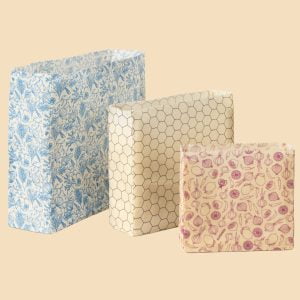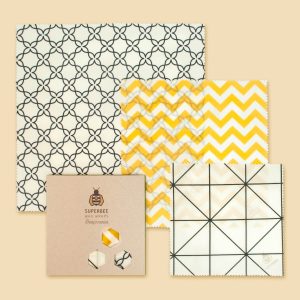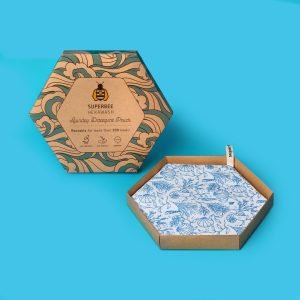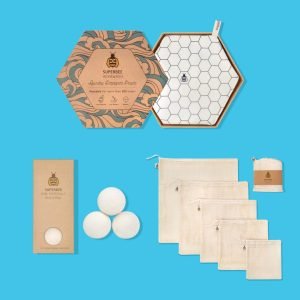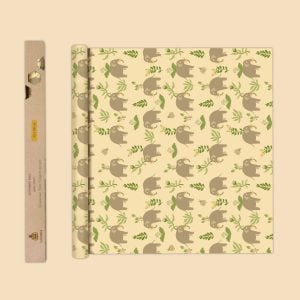The 10 R’s of Zero Waste Parenting

From disposable diapers to new school supplies, countless items of clothing to snack after snack after snack, raising kids in today’s world involves a lot of stuff that is often made of or wrapped in plastic.
Though true zero-waste parenting, or plastic-free parenting, is impossible, we strongly believe that it’s our responsibility to instill sustainable living principles in our children, do what we can to limit our waste and consumption, and raise a new generation of eco-warriors.
Ready to join us? Keep these 10 R’s of zero waste parenting in mind.
P.S. While we’re gearing these tips to parents, they really can be applied to anyone!
1. Remember the point.
Remind yourself of the point of the zero-waste movement, and what we’re really striving for. It’s not about perfection, it’s about living imperfectly but intentionally. It’s about creativity and feeling a sense of connection to something bigger. It’s about being part of a cycle and a circular economy, not just being a pass-through point on the dig-it, dump-it economy.

2. Round and Round
Create a cycle in your household and community. Start with your household and reuse what you have around you. Can large sheets be sewn into baby sheets and blankets instead of buying new ones? Can milk be warmed gently on a stove instead of buying bottle warmers? Then move outward to joining or creating your own community cycles – have you heard of Little Libraries? Start a book swap in your neighborhood. Start a swap/buy-sell group for passing around clothes, shoes, toys, etc. Most parents are happy to pass things on – request what you need and don’t be shy to ask!

3. Refuse
Yes, kids need and use a lot of things and it’s especially easy to get sucked into the vortex of all the “must have’s” when first having a baby. But, just like you refuse to take unnecessary plastic bags at the grocery store, you can refuse to follow what today’s consumerism and capitalism say you “have” to have. This also can include telling friends and family that you will not accept unnecessary toys or plastic gifts, and refusing to fall into the convenience trap of buying packaged goods at the store or disposable decorations for birthdays, holidays and more.

4. Reduce
“Reduce” naturally goes hand-in-hand with “reuse.” By choosing reusable goods instead of disposable items, you’ll not only reduce what you consume but also naturally reduce your waste. This could mean switching from disposable nappies to reusable cloth ones, investing in reusable mesh cotton produce bags to bag up groceries or reusable bamboo straws instead of single-use plastic ones, reusing clothing or toys from friends and family instead of purchasing new ones…the list goes on! Tackle it bit by bit – choose one area in your parenting that generates the most trash and focus on that first – is it diapering? Art/crafting materials? Is it meal prep, packing snacks and lunches, or food storage?

5. Reuse
Reusing and upcycling what you have is a great way to unleash your creativity and stretch your problem-solving skills. Children often grow out of clothes from season to season – no need to buy new, you can convert their winter pants and leggings to summer shorts. Onesies make adorable t-shirts by cutting and hemming the bottom. Tiny clothes make great blankets, curtains, tote bags, and pillowcases. If you don’t know how to sew, most can be made with a little glue-gun action!
6. Rethink
Moving toward a more sustainable and plastic-free parenting lifestyle means you’ll need to rethink many behaviours, purchases, and ways of doing things that have become habits over the years. Instead of automatically buying individually packaged jars of baby food (or squeezable plastic pouches that are nearly impossible to recycle) or snacks, try to make some of your own baby food and store it in reusable glass containers. With older kids, have a snack-packing party every Sunday where they fill up reusable bags or containers of snacks they’ll want for the week that you’ve purchased in bulk. Have kids in school? Check out these easy tips on packing zero-waste school lunches.

Go through the two rooms in your home that often produce the most plastic and waste – the kitchen and the bathroom – and rethink the items you use on a daily basis. Can you make any zero-waste swaps, like using natural loofah sponges instead of plastic sponges for the kitchen and body? It’s hard to live zero waste – in fact, it’s impossible! – and it gets even harder when you’re trying to take care of other little humans. We still have those days when we may have to grab something plastic-wrapped to go on the way home for dinner. If you want to try and preserve the Earth for future generations, then we all need to rethink how we live our lives.
7. Recycle
Recycling facilities and programs vary greatly from place to place. Research what’s available in your area then work to make recycling easy and accessible in your home. Learning about what materials are recyclable and how to sort recycling from a young age will ensure that it becomes the norm in your household and a regular part of your child’s routine. Turn it into a game or get kids curious and engaged in sustainability with lots of questions and learning opportunities. “Where do the materials for this box come from? What do you think happens to it now after it leaves our recycle bin?”

8. Regift
Have you ever passed on a favorite item from your child’s wardrobe, and then seen another child wearing it? It’s heart-warming, brings up lovely memories, and brings us closer to the community around us. As kids grow bigger and older, they’ll grow out of many things, such as clothes, toys, cribs, car seats, and more. Make an effort to pass on what you can to other parents – this will help reduce what others need to purchase and ensure products are reused again and again! Check out some of our great ideas for unique, sustainable gifting, good for any occasion.


9. Repair
Respect what you have and take the needed steps to maintain and repair things. You don’t have to be a modern-day MacGyver, you just need to Google it. Check the place where you bought it, most product descriptions include care & maintenance, or seek advice from friends and family, or ask in zero-waste Facebook groups – we’ve found these communities to be super creative and helpful!

10. Role model
This is the most important thing – regardless of their age, children are constantly learning by what they see us do and say. By modeling the beliefs and behaviours that you want to promote, they’ll learn by example. This is true for everything from brushing your teeth every night and treating others the way we want to be treated, to remembering to bring your mesh bags when shopping, to refusing single-use plastic products whenever possible. If you want to live more sustainably and pass these principles onto your children, teach them through your actions.
If you’re looking for ideas and easy swaps you can make to help you with plastic-free, zero-waste parenting, check out all our sustainable options here!
SuperBee
